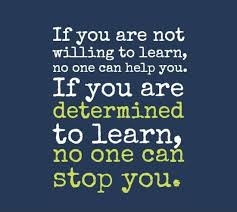

A Word About Learning
A word about learning ---Learning is not a spectator sport. Fundamentally, the responsibility to learn is yours and yours alone. For learning to happen in any course, you must take an active role in the process. For our class, you are expected to come to class prepared and ready to learn, which requires you to read and study the assigned reading before you come to class. Being prepared for class enables you to construct a knowledge base on which subsequent learning rests. During our class, we don’t cover content, which means I talk less to encourage you to talk more about what you are learning.
Regarding Attendance and Participation--VERY IMPORTANT
Our class process is heavily dependent on your preparedness and your presence. When I am in class, you need to be in class. When we are working with a class-time in an online format, you need to be participating in that format as well.
You will be engaging in learning tasks that require you show through speaking and writing, your grasp of the material and how it connects to your previous knowledge or experiences. Your in-class performance on these tasks will be evaluated through your response to questions that directly pertain to our discussions. They will also be evaluated through your honest answer to the following question, "Have you read the text up to the point that was due today?"
These in-class opportunities are centered on your voice and experience. They are intended to help us continually shape our classroom process so that it is relevant, reflective and refreshing in the context of your learning this semester.